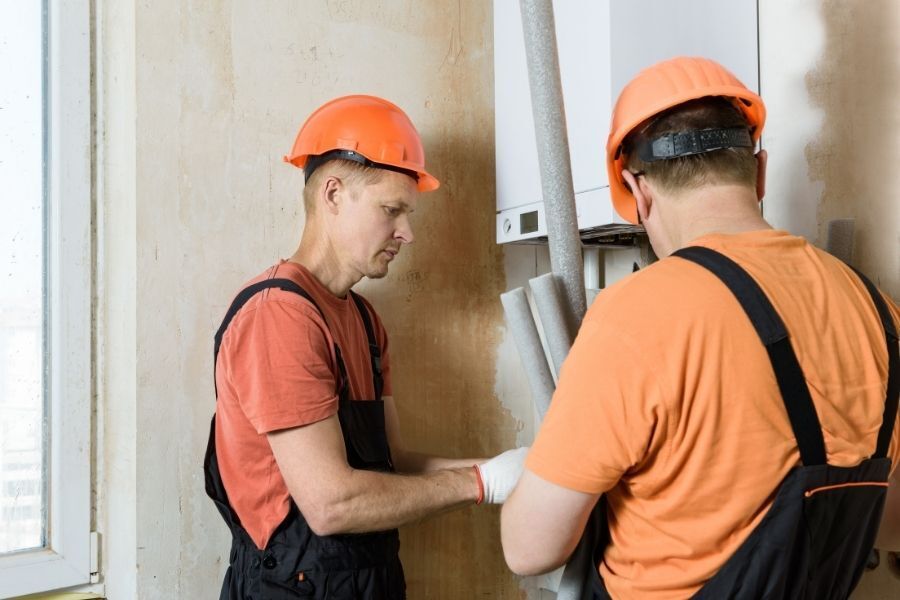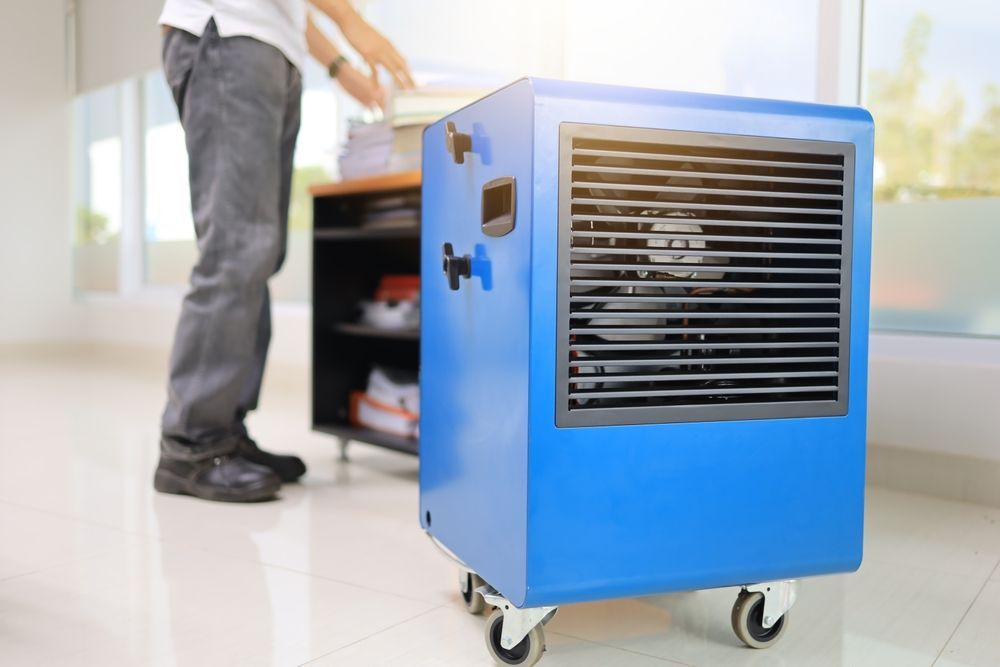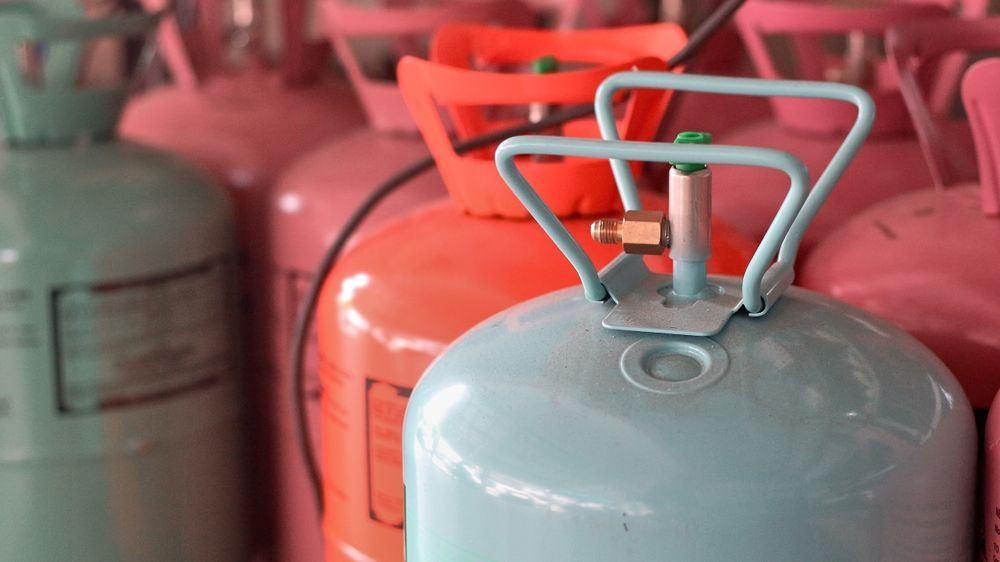What is a Condensing Boiler?

What is a condensing gas boiler? If you've ever asked this question, you're definitely not alone. This type of boiler is growing in popularity for home use, thanks to its efficient nature.
A condensing boiler collects gas that's produced by burning fuels — such as oil or natural gas — and routes it back into the system, where it can be used to heat water. It's a cost-effective and efficient appliance that creates lower carbon emissions than many other types of boilers.
Read on to learn more about condensing gas boilers.
How Does a Condensing Boiler Work?
When a boiler burns natural gas, it produces carbon dioxide and water vapor as by-products. In a standard non-condensing boiler, this water vapor, accounting for about 10% of the fuel's energy, exits through the chimney as wasted energy. The innovation of a condensing boiler lies in its utilization of not only the heat from natural gas combustion but also from the otherwise discarded water vapor.
Within a condensing boiler, the water vapor is converted back into water droplets, enveloping the heat exchanger. The heat exchanger extracts this energy, converting it into additional heating energy. The resulting water, along with acidic byproducts from fuel combustion, is then drained out and neutralized. In boilers like the Viessmann Vitodens series, the efficiency of this process is optimized by the design of the heat exchanger and the home's heating system.
Here's a closer look at the process:
- Primary Heat Exchanger: The boiler burns gas or oil, and the heat is directed into a primary heat exchanger. The hot air stays within the exchanger, raising its temperature significantly before transferring the heat to radiators.
- Secondary Condensing Area: Unique to condensing boilers, this secondary area allows the warm air to condense, forming water vapor. These droplets are collected and drained away, a key efficiency advantage.
- Heat Recovery: Unlike older boilers that release heat into the flue at over 200 degrees Celsius, condensing boilers significantly reduce this temperature, often reaching around 55 degrees Celsius. This efficiency enables the recovery of more heat before it's lost.
In essence, condensing boilers are designed to reclaim and recycle heat, making them more energy-efficient and environmentally friendly compared to traditional boilers.
Condensing Boilers vs Non-Condensing Boilers
When it comes to residential heating, the choice between condensing and non-condensing boilers is crucial. The primary distinction lies in their efficiency, where condensing boilers shine with rates exceeding 90%, a significant improvement over the 70-80% range of non-condensing counterparts.
Efficiency and Savings:
Condensing boilers offer impressive efficiency, translating into lower energy bills and a more environmentally friendly option for homeowners. Their ability to capture and utilize heat that would otherwise be wasted sets them apart, making them a cost-effective choice in the long run.
Size, Installation, and Venting:
Condensing boilers boast a more compact size, allowing for convenient wall-mounting, while non-condensing boilers are larger, floor-standing units. The venting options further differentiate them – condensing boilers offer flexibility with materials like PVC, CPVC, PP, SS, or type BH, while non-condensing units require a proper chimney or flue.
Efficiency Differences:
The efficiency gap is evident in the numbers, with condensing boilers having an AFUE of up to 95%, emphasizing their ability to minimize energy loss compared to the up to 80% AFUE of non-condensing boilers. The choice impacts not only current utility bills but also long-term energy savings.
Considerations for Homeowners:
The decision between condensing and non-condensing boilers hinges on factors like space, venting options, and long-term efficiency goals. Homeowners should carefully evaluate their specific needs to make an informed choice that aligns with their heating requirements and financial considerations.
Advantages vs Disadvantages
Condensing gas boiler offer several advantages. First and foremost, they save money. Condensing boilers capture more heating potential, so consume less fuel. This means lower energy bills.
Condensing boilers also produce less carbon emissions. Condensing technology offers a greener option than traditional, non-condensing boilers, reducing your building's carbon footprint.
As for disadvantages, because liquid flows through the condensate pipe slowly, it may be more likely to freeze during the colder months. However, an easy solution lies in insulating the pipe.
1 Source Mechanical Offers Boiler Solutions
Need a new boiler? 1 Source Mechanical can help you decide which type of boiler is best for your building's heating needs. If you have questions about what is a condensing gas boiler, the differences between condensing and non-condensing boilers, or about boiler installation, we've got answers!
Contact 1 Source Mechanical today at 815-517-0501 or fill out our online contact form.



